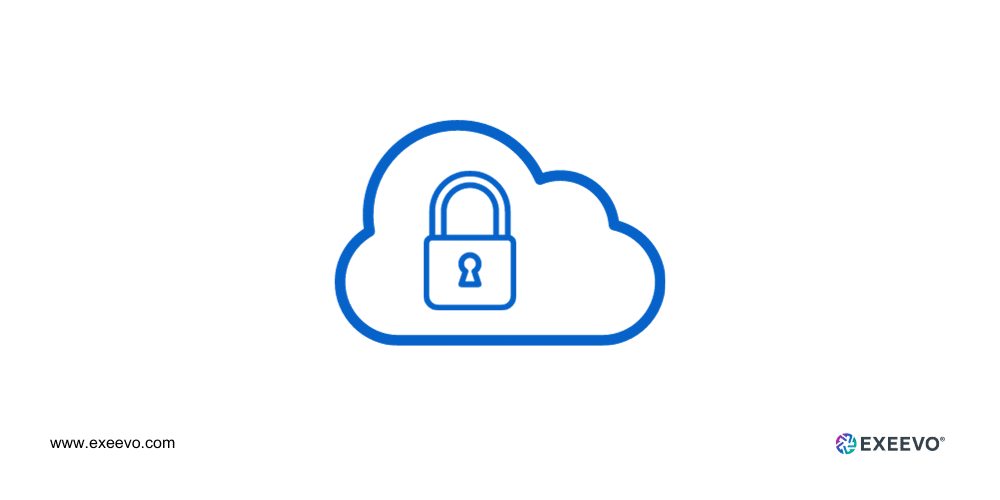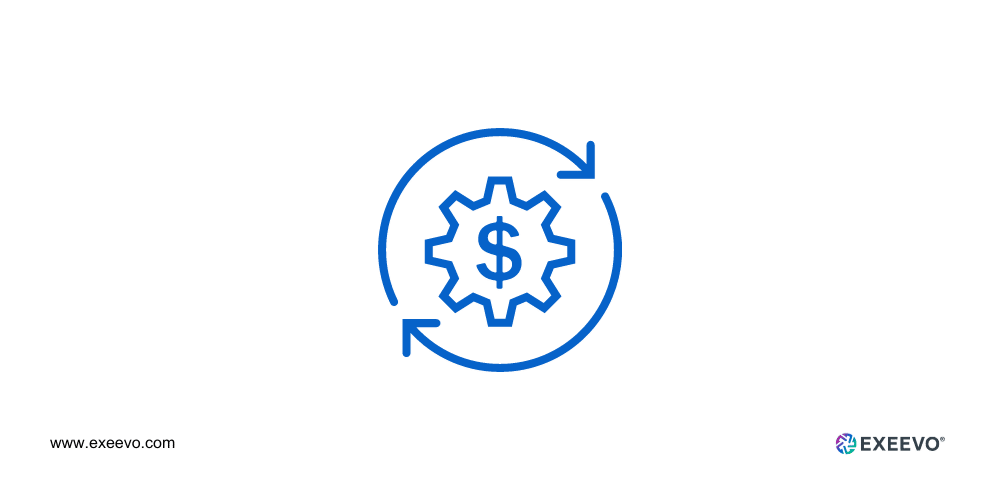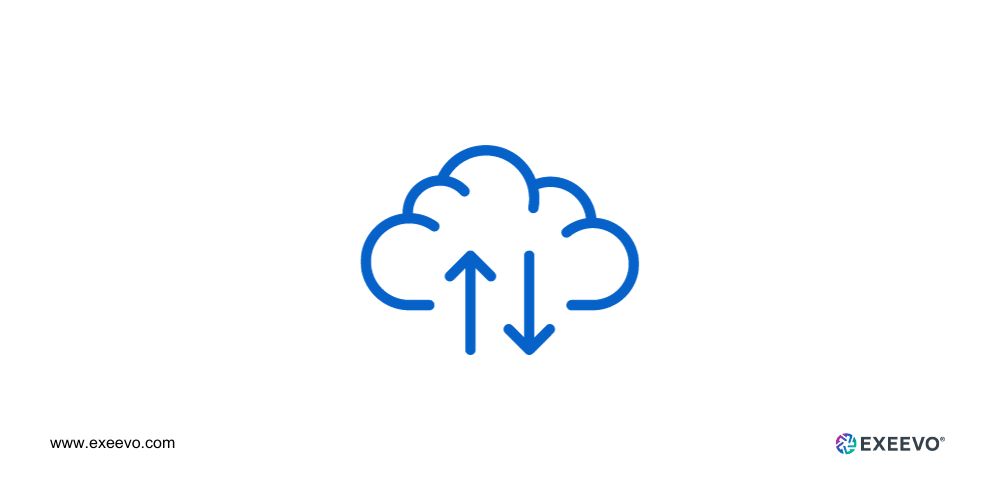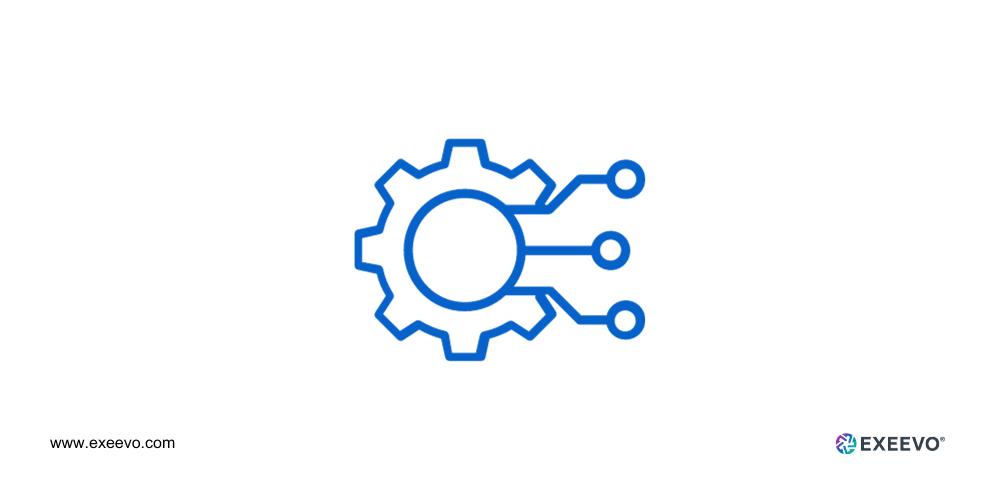Customer relationship management in the Life Sciences industry has transformed since the days of iPad-toting field reps.
As the role of technology increases, Life Sciences companies must recognize the need for more advanced tools. The “move-it-to-cloud” sentiment is not about adapting to change. It’s about thriving in the face of increasing digital demands.
McKinsey’s research shows that businesses can extract substantial value from cloud technology through cost-reduction strategies and value-driven business applications. The Life Sciences industry will grow exceptionally as cloud solutions expand six-fold in the next decade.
This article explores the benefits and practical applications of cloud-based CRM in the Life Sciences sector. Through detailed analysis and industry insights, we highlight the compelling reasons to move toward a more modern CRM.
Exploring Cloud CRM Solutions for Life Sciences
Cloud-based CRM software is a platform that manages a company’s interactions with current and potential customers using cloud computing. Instead of the company’s servers hosting it, the CRM system resides in the cloud. This grants easy access from anywhere with an internet connection.
Traditional on-premises CRM requires physical infrastructure and often complex setups. Cloud-based CRM software offers more flexibility, eliminating the need for:
- Hardware maintenance,
- Extensive setup times,
- Regular software updates.
The introduction of SaaS has further enhanced the functionality of cloud-based CRM. SaaS allows users to access software applications over the internet without the hassle of installation or maintenance. This shift is particularly beneficial in the Life Sciences context.
Rapid advancements and data-driven decisions are at the core of the cloud. The Life Sciences industry benefits from real-time data access, scalability, and the collaborative features cloud technologies offer.
Benefits of Cloud-Based CRM in the Life Sciences Industry
Adopting cloud-based CRM in the Life Sciences industry opens the door to many things that were not possible in the past.
For example, healthcare data breaches have steadily increased, surging 42% in 2020 during the pandemic. Over the next five years, Life Sciences enterprises face a global financial loss of $642 billion due to direct cyberattacks.
Cloud-based CRM systems provide enhanced security. They also ensure compliance with regulatory standards to address these concerns. These solutions give rise to a safe, compliant data-handling environment.
Exeevo’s best cloud-based CRM solution exemplifies such benefits. Our platform is built to accelerate global productivity. With Exeevo, connecting with customers globally becomes a streamlined process. It provides an unmatched ability to provide real-time advanced insights through seamless data science utilization.
The single license framework facilitates a unified ecosystem. It minimizes messy integrations and reduces the total cost of ownership. Moreover, Exeevo’s best cloud-based CRM, Omnipresence, integrates with numerous business applications like ERP and Microsoft Apps, making it a holistic and robust cloud-based CRM system for Life Sciences.
Let’s shift our focus to the other benefits awaiting Life Sciences companies with cloud-based CRM adoption.

Scalability and Flexibility
Companies encounter changing demands. These demands stem from changing research cycles, regulatory alterations, and market shifts. Cloud-based CRM software can scale up or down to meet these varying needs. They add to resource requirements for seamless operations despite external pressures.
Flexibility ensures an agile response to new opportunities or challenges. It becomes necessary in the Life Sciences industry, where things change rapidly. Such adaptability caters to immediate needs and sets a solid foundation for long-term and sustainable growth. Through cloud CRM, Life Sciences industries are better positioned to handle the challenges and flows inherent in their field.

Cost-Effectiveness
Life Sciences companies often confront financial concerns. These include budget constraints and the imperative for efficient resource allocation. Cloud-based CRM solutions emerge as a cost-effective answer to these financial hurdles. Unlike traditional on-premises systems, cloud CRM cuts down on infrastructure maintenance and upgrade expenditures.
The industry is beginning to recognize this. 61% of businesses intend to enhance cloud utilization to achieve cost efficiencies.
Cutting costs with minimal upfront investment makes a compelling case for its adoption. Additionally, the pay-as-you-go model further enhances cost control. It allows companies to invest resources.
Over time, the financial foresight that cloud CRM’s cost-effectiveness enables can funnel into other critical areas. It can help Life Sciences companies achieve their objectives without financial strain.

Data Security and Compliance
Data security and compliance are critical pillars in the Life Sciences and legal sectors. However, the healthcare industry faced a significant cybersecurity challenge in 2020; 60% of ransomware incidents were directed towards it.
Cloud-based CRM solutions address these concerns. They come equipped with robust security features, such as encryption and access controls, which are fundamental to safeguarding sensitive data. These security measures ensure that unauthorized individuals cannot access the data.
For Life Sciences companies, these CRM solutions provide a secure data handling environment. It’s a prerequisite for maintaining trust with clients and meeting regulatory requirements. Thus, they emerge as non-negotiable assets.

Remote Access and Collaboration
Cloud-based CRM systems allow authorized users to access vital information from anywhere. Only an internet connection is the sole requirement. This feature benefits Life Sciences, where evolving research, real-time data sharing, and cross-team collaboration are essential.
Cloud-based CRM software bridges geographical and time zone gaps. They foster a conducive environment for collaborative efforts. Such accessibility accelerates task completion and ensures every team member stays updated. This leads to a collaborative ecosystem essential for informed decision-making.

Real-Time Insights
Accurate and up-to-date data serves as the foundation for informed decision-making. It spans across research, commercial, and strategic planning.
A cloud-based CRM system can offer real-time data analytics and reporting capabilities. These solutions equip organizations with immediate insights for prompt and informed choices.
The CRM analytics sector is witnessing fast expansion, with an estimated compound annual growth rate of 13.7%. The transformation from traditional CRM to a more customer experience-centric platform further underscores the need for real-time insights.
Using a cloud-based CRM system, Life Sciences enterprises can get real-time customer insights. This enhances both operational efficiency and customer loyalty.

Integration Capabilities
Life Sciences companies use various tools and systems. Thus, they need seamless integration. Systems that work in harmony streamline the processes. It can reduce duplicate data entry and boost workflow efficiency.
Cloud CRM solutions provide essential integration capabilities. It can harmonize disparate systems for improved organizational performance.
For instance, Exeevo Omnipresence event management offers an integrated solution for virtual, hybrid, and in-person events. With a suite of comprehensive tools, from speaker management to attendee engagement, this platform centralizes data, ensures policy compliance, and even features native Microsoft Teams integration. This eliminates additional costs and simplifies event management processes.

Ease of Implementation and Updates
Setting up on-premises systems might take longer when transitioning from legacy systems to modern solutions. However, cloud-based CRM solutions stand out for their simplicity and speed:
- You can implement cloud-based CRM solutions in no time. It reduces the strain on IT teams and resources.
- Updates become hassle-free. With cloud CRM, Life Sciences companies can stay current with the latest features and advancements without the heavy lifting.
Cloud-based CRM offers a seamless shift from old to new, ensuring effortless updates. It can keep businesses agile.

Customization
The Life Sciences sector involves unique processes and terminology in research, sales, and patient care. Customization in cloud-based CRM solutions addresses these specifics. This functionality allows the configuration of data fields, workflows, and user interfaces to match industry demands.
The customization extends to streamlining interactions. It helps manage complex relationships within healthcare.
CRMs automate routine tasks with tailored data fields to create personalized and efficient communication. Similarly, CRM customization unifies multiple data sources to help harness data-driven insights crucial for customized engagement. This tailoring proves significant in enhancing remote engagement capabilities and making interactions flexible.

Practical Applications of Cloud-Based CRM in Life Sciences
A study suggests that CRM systems enhance lead conversion rates by 300% and elevate purchase value by 40%.
Take SANOFI China as a case in point. SANOFI China is a major player in the Life Sciences field, with over $2 billion in annual sales. However, it faced challenges with its legacy systems, which needed more flexibility, scalability and compliance with data laws.
To solve these issues, SANOFI China adopted the Omnipresence CRM, a cloud-based solution tailored for Life Sciences. This platform integrates with multiple data sources and leverages the power of AI and machine learning.
With the new CRM, SANOFI China has seen an uptick in its operational efficiency. The company has also created enhanced commercial strategies and customer experiences. The results speak for themselves. It led to improved alignment across customer-facing roles and the successful rollout of the platform to over 5,500 users in China. Let’s look at other practical applications of cloud-based CRM in Life Sciences.
1. Research and Development Efficiency
Cloud CRM automates data entry to simplify operations and save valuable time. This way, teams can access and update data from any location for speedy research processes. It also offers a clear view of project progress to ensure tasks stay on track.
Recent surveys by SoftClouds show that 80% of companies rely on CRM systems to facilitate sales reporting and streamline their operational processes.
What makes handling large research projects more manageable? A central platform for communication, documentation, and process oversight. The convenience of automation and improved collaboration allow researchers to direct their attention to core research tasks.
Providing a unified perspective on project metrics, cloud CRM supports informed decision-making. Through integrating cloud CRM, Life Sciences organizations can fast-track R&D. It encourages quicker innovations and superior outcomes.
2. Clinical Trial Management
Leveraging cloud CRM technology, trial organizers can track patient enrollment to ensure all participants are accounted for. Storing and accessing consent forms becomes simpler. This minimizes paperwork and potential errors. You can keep the process transparent and up-to-date as you track each trial phase.
One of the standout features of cloud-based CRM software is the provision of real-time insights. Such timely data helps identify operational bottlenecks to keep the trial compliant and efficient.
Customer experiences influence product success, especially in the pharma and biotech sectors. Modern customer experience management (CXM) emphasizes optimal customer journeys. Challenges arise with the surge of digital channels. Customers desire a consistent experience across all touchpoints.
The CXM platform provides these seamless experiences by leveraging customer preferences and using advanced technologies for insights. This approach ensures every customer interaction adds value and progresses their journey.
3. Sales and Customer Support
Effective customer relationship management helps sustain growth in the Life Sciences sector. Cloud CRM comes to the forefront in streamlining sales and customer support processes. It organizes potential customer data in a centralized system for efficient lead management. This arrangement ensures no lead falls through the cracks.
Since the CRM system logs all interactions with prospects and customers, it enhances the nurturing aspect. This assists in personalizing communications and ensuring timely follow-ups.
- Cloud CRM provides a platform that simplifies the process of attending to customer inquiries and issues. It offers a structured system for handling customer support cases and ensuring timely responses.
- Cloud CRM analytics help you understand customer behavior and preferences, which is essential for refining commercial strategies.
Through a centralized and organized approach, CRM cloud-based software brings much-needed professionalism to the Life Sciences sector.

4. Regulatory Compliance
Adhering to regulations in the Life Sciences sector is crucial for safeguarding patient well-being and avoiding legal pitfalls. CRM cloud-based software emerges as a reliable tool for aiding regulatory compliance. It introduces features like audit trails that record every action within the system. This provides a transparent and traceable history of data interactions. Transparency helps during inspections or audits.
- The permissions management feature allows control over who accesses what data.
- Data encryption further secures sensitive information. It prevents unauthorized access and ensures compliance with data protection regulations.
Exeevo Omnipresence provides the best cloud-based CRM solution with essential cloud-based legal practice CRM for law firms. It aligns well with industry and government requirements and offers a robust infrastructure to manage compliance. Our cloud CRM simplifies the compliance process and builds a strong foundation for legal and safe operations within the Life Sciences industry.

5. Patient Engagement and Personalized Care
Cloud CRM tools ease the process of managing patient information across various stages of healthcare. These solutions enable HCPs to streamline patient data. They help create comprehensive patient profiles by capturing essential details and medical histories. As a result, HCPs can access updated patient information, ensuring they make informed decisions.
A significant 74% of users reported enhanced access to customer data through their CRM system.
The coordination of care plans also becomes more efficient with cloud CRM. Providers can monitor treatment plans, set reminders for patient check-ups, and update care strategies when needed. The integration of such tools ensures a patient-centric approach.
HCPs can provide personalized care as they identify patient needs and preferences. It leads to better patient outcomes and improved engagement.
6. Data Analytics and Insights
The Life Sciences field generates a vast amount of data. Thus, it might be difficult to extract meaningful insights. Cloud CRM provides analytics tools for visualizations, trend analysis, and predictive modeling. These tools simplify the process of drawing valuable insights from data.
According to a report by MicroStrategy, 56% of businesses noted that data analytics led to faster and more effective decision-making.
In this digitally-driven world, advanced AI techniques integrate into CRM systems. This enables more personalized experiences across customer channels, which helps in commercial and marketing efforts.
One practical application is connecting rich customer data in AI-based CRMs to sales data, which unveils trends and insights crucial for understanding dynamic customer needs.
AI plays a significant role in reducing the cost and time needed for new drug discovery and development. It showcases how data analytics in cloud CRM is about understanding current trends and predicting future ones.

7. Supply Chain Management
The Life Sciences field navigates complex tracking of inventory, order fulfillment and distribution. This is especially so for pharmaceuticals and medical devices. Cloud CRM tools come in handy to make supply chain management efficient by:
- Monitoring stock levels,
- Automating reorder processes,
- Optimizing distribution logistics.
Cloud CRM centralizes data related to the supply chain. It gives a clear picture of stock status and logistics. This centralized approach helps reduce errors and ensure timely order fulfillment.
Automating reorder processes is another benefit, helping to maintain an adequate stock level for a supply chain. Cloud CRM also assists in optimizing distribution logistics by analyzing data to determine the most efficient routes and methods for distribution, which, in turn, reduces operational costs.
Future of Cloud-Based CRM in Life Sciences
The future of cloud CRM in the Life Sciences sector looks bright as it intertwines with emerging tech trends.
One key trend is the integration of AI and machine learning. These technologies help automate routine tasks. It frees up time for more strategic endeavors. They also play a significant role in data analytics by drawing actionable insights from large datasets.
Cloud CRM systems are evolving to be more intuitive, learning from data to offer predictive analytics. This benefits commercial and customer engagement, enabling personalized interactions based on past behaviors and preferences. Another emerging trend is the seamless integration of cloud CRM with other enterprise systems. This integration centralizes data, making it accessible for quicker decision-making.
Exeevo’s technology, hosted on Microsoft Azure, addresses Life Sciences’ unique demands. It bypasses traditional platform challenges. The aim is a swift, industry-focused customer experience. CXM now combines several tools into one platform tailored for Life Sciences. Indegene Omnipresence responds to industry challenges that streamline the digital transformation process.
The Cloud-Based Revolution

Cloud-based CRM has revolutionized Life Sciences. It offers transformative benefits like streamlined operations and enhanced customer engagement—the future promises even greater potential. Life Sciences companies can’t afford to overlook this.
Expectations have shifted. Modern roles need smarter tools, and most HCPs will soon be digital natives. They want digital and analog coordination. There’s pressure to evolve and compete. Some reasons companies consider modern CRM:
- Different market needs,
- Cost concerns,
- Lack of intelligence,
- User dissatisfaction,
- Data challenges,
- Slow content creation,
- Average customer engagement.
It’s time for a strategic CRM approach focused on intelligence and engagement. Think about the limitless possibilities of cloud CRM for your venture. Want to know more? Learn about the signs of a Life Sciences CRM cloud strategy here.
